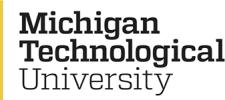(dis)Credit: Erasure and scrutiny of women in STEM
Women in science, technology, engineering and mathematics face simultaneous invisibility and hypervisibility in settings of all types across academe. Over time, patterns of omission in citation or ideas unacknowledged in meetings have a cumulative effect. Many consequential decisions from grant funding to hiring to tenure and promotion rely formally or informally on these inequitable patterns of recognition and reward. At the same time women are frequently subjected to increased scrutiny in evaluation and review, from hiring and job performance to funding and publication. Increasingly, women in STEM are subjected to targeted harassment via social media that can traumatize scholars, their families and colleagues.
Women’s experiences of invisibility and hypervisibility are shaped by race, class, disability, gender identity, sexual orientation, immigration status and other types of difference, producing distinct inequitable effects. How can we work together to disrupt these patterns of inequity that mark sexist academic STEM cultures? How can we come to terms with root causes in order to structure processes and practices to more effectively counter systemic injustice?
Virtual presentation and Q&A
Dr. Donna M. Riley, Kamyar Haghighi Head of the School of Engineering Education at Purdue University, will give a presentation via Zoom to enhance awareness of gender bias and continued lack of diversity in STEM fields.
Thursday, Oct. 29
4 p.m. EDT – Virtual presentation and Q&A
This event is the second in a year-long, Cross-Institutional Caucus Series, hosted by the four institutions engaged in the NSF ADVANCE Midwest Partnership – Joining Forces grant. The series, taking place in 2020-21, will highlight gender inequities in STEM workplaces, and suggest institutional strategies to counter these inequities.
Meet Dr. Riley
Prior to her new role at Purdue University, Riley was professor and interim head in the Department of Engineering Education at Virginia Tech. From 2013-15, she served as program director for Engineering Education at the National Science Foundation. Riley spent thirteen years as a founding faculty member of the Picker Engineering Program at Smith College, the first engineering program at a U.S. women’s college.
In 2005, she received an NSF CAREER award on implementing and assessing pedagogies of liberation in engineering classrooms.
ADVANCE Midwest Partnership – Joining Forces
The ADVANCE Midwest Partnership - Joining Forces is a cross-institutional effort of these four research-intensive, doctoral-granting public universities funded by the NSF ADVANCE program to promote increased equity, diversity, and faculty retention and career advancement of faculty in science, technology, engineering or mathematics.
Sponsors






